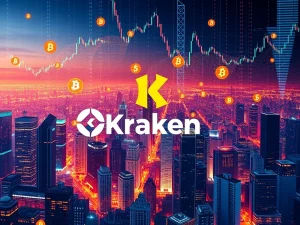Blockchain’s Role in ESG (Environmental, Social, Governance) Reporting

[ad_1]
Understanding ESG Reporting and Its Challenges
ESG reporting allows companies to share their performance on issues like environmental impact, community involvement, and ethical governance. It has become increasingly vital as customers, investors, and regulators seek responsible business practices. But current reporting methods come with limitations:
Complexity: ESG data comes from many sources and often lacks standardization.
Transparency: Data can be difficult to trace, and some companies may exaggerate achievements.
Verification: Validating data is often costly and time-consuming, leading to doubts about its accuracy.
These challenges make it tough for businesses to build genuine, trustworthy reports, and they expose gaps that blockchain technology is uniquely positioned to address.
How Blockchain Enhances ESG Reporting
Blockchain technology brings a few key strengths to ESG reporting, helping address the issues of transparency, traceability, and verification. Here’s how it works:
Transparency and Decentralization: Blockchain’s decentralized ledger system ensures that information is recorded publicly and cannot be altered. This feature provides a transparent look at a company’s ESG data, which investors and the public can access and trust.
Data Verification: With blockchain, companies can submit verified data entries that are tamper-proof. These records are distributed across multiple nodes, ensuring accuracy and preventing fraud.
Efficient Reporting: Blockchain allows for real-time updates, reducing the delays and administrative work usually required for ESG reporting. This streamlines the process and makes it easier for companies to stay compliant with ESG standards.
Blockchain ESG: Examples and Benefits
Some industries are already exploring how blockchain can improve ESG reporting. Here are a few examples and benefits:
Industry
Blockchain ESG Application
Benefit
Energy
Renewable energy certificates (RECs) tracking
Ensures authenticity of eco-friendly claims
Agriculture
Tracking sustainable farming practices
Verifies eco-friendly sourcing
Finance
Green bond issuance transparency
Reduces greenwashing risk
Supply Chain
Monitoring of ethical labor practices
Ensures adherence to labor standards
Benefits Breakdown:
Improved corporate transparency: With Blockchain recording every transaction in real time, corporate transparency is enhanced by allowing stakeholders access to data that is accurate.
Decentralized Reporting: Since Blockchain is decentralized, things are fair for companies because no company can selectively edit the data or show only positive indicators.
Eco-friendly crypto-solutions: Even blockchain’s own environmental impact is being minimized with new, greener blockchain networks emerging, hence for the first time aligning technology with sustainability objectives.
Sustainable Blockchain and Eco-friendly Crypto
While blockchain has received much criticism due to the amount of energy it consumes, newer models of blockchains are focusing on how to reduce environmental impacts. This would prove important in the sustainability of blockchain for ESG reporting in that it would fall in line with the latter’s environment-related goals. Let’s dive into some of the ways in which this could happen:
Proof of Stake Systems: PoS requires drastically less energy compared to the power-intensive PoW systems; thus, proving to be a much more sustainable option for ESG reporting on blockchain.
Cleaning up their processes, some blockchain networks already use renewable energy or mechanisms of carbon offsetting. The trend encourages the creation of eco-friendly crypto-solutions.
Carbon Credits and Offsetting: The second way that blockchain might help with environmental sustainability is by making carbon credit trading easier, which would help companies offset their emissions more effectively.
Blockchain in Action: ESG Success Stories
Several companies and platforms are successfully using blockchain for ESG reporting. Here are some standout examples:
IBM’s Food Trust: This blockchain platform traces food from farm to table, tracking sustainability metrics like water usage and pesticide levels.
Everledger: A blockchain company focused on ethical sourcing, Everledger uses blockchain to track diamond origins, ensuring ethical mining practices.
CarbonX: This blockchain-based platform allows users to offset their carbon footprints, offering tokenized carbon credits that consumers can buy or trade.
These examples show how blockchain not only supports ESG reporting but also enables new ways for companies to demonstrate their commitment to sustainability.
Challenges and Future of Blockchain in ESG Reporting
Despite its promise, blockchain technology in ESG reporting still faces challenges:
Integration with Existing Systems: For blockchain ESG reporting to be truly effective, it needs to integrate smoothly with a company’s existing data systems.
Regulatory Concerns: The lack of standardized regulations for blockchain ESG reporting can make compliance challenging for companies.
Energy Consumption: While eco-friendly blockchain networks are developing, not all companies have switched to them, which raises sustainability concerns.
Looking forward, advancements in decentralized reporting tools and sustainable blockchain systems could address these issues. As more companies adopt blockchain for ESG, we’re likely to see new standards and regulations that make it easier to integrate blockchain across industries.
Is Blockchain the Future of ESG Reporting?
Blockchain has a lot of promise for use in ESG reporting. It can simplify the reporting process, lower fraud, and increase company transparency. Blockchain is becoming increasingly in line with sustainability objectives as eco-friendly cryptocurrency advances, which increases its allure for businesses looking to satisfy ESG standards.
However, businesses will need to overcome technological and regulatory obstacles before widespread adoption can occur. Blockchain offers a viable platform for companies aiming to take the lead in ESG to show their dedication to openness and moral behavior. Blockchain technology may eventually become the industry standard for ESG reporting as it develops further.
Blockchain provides a creative and dependable answer to ESG reporting, opening the door for a more transparent future, regardless of a company’s goals—tracking carbon offsets, verifying sustainable sourcing, or keeping an eye on ethical activities.
[ad_2]
Source link









